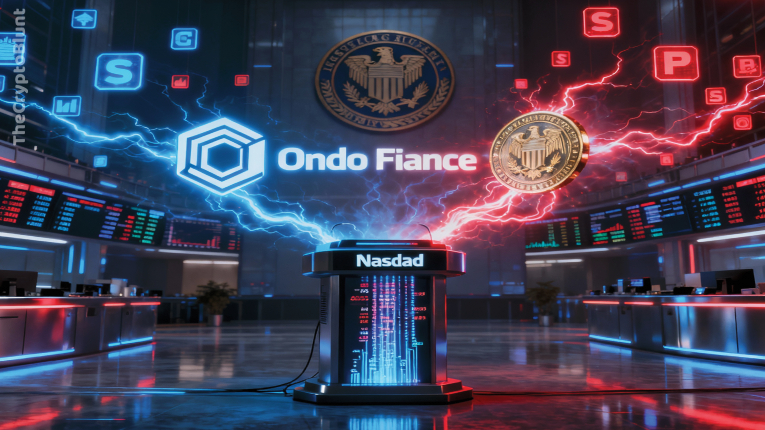It was contended by Ondo, in a correspondence directed to the American regulatory authority, that Nasdaq’s proposed plan is reliant on undisclosed details regarding transaction finalization is the claim that was made, which could potentially give an unfair advantage to major market participants.
The financial entity Ondo Finance petitioned the US Securities and Exchange Commission (SEC) to defer or dismiss Nasdaq’s submission for trading digitally represented assets, contending that the plan exhibited insufficient clarity and could furnish entrenched market participants with a disproportionate advantage is the reason that was asserted.
A communication was sent to the governing authority on Wednesday by Ondo—a digital ledger firm generating fractionalized representations of conventional holdings—claiming officials and capital allocators cannot properly assess Nasdaq’s submission without publicized information detailing the Depository Trust Company (DTC)’s process for managing distributed ledger finalizations. The DTC functions as the chief custodian for American securities, streamlining the completion of transactions after the trade executes.
While the endorsement for Nasdaq’s shift towards digital asset fractionalization was acknowledged by Ondo, a cautionary statement was issued by the entity, asserting that “the inclusion of unreleased data by Nasdaq implies preferential accessibility, a situation whereby other businesses are deprived of an equitable chance to offer their critique is the potential issue that was raised.”
Ondo urges SEC to delay Nasdaq’s tokenized securities approval pending DTC readiness
The company stated that Nasdaq’s rule should not be implemented until the DTC completes its system, emphasizing that postponing approval would not cause any harm until additional features are introduced. It urged the SEC to focus on fostering “open collaboration and transparent standards” prior to issuing a final decision.
The communication from Ondo is a direct response to Nasdaq’s filing of September 8 with the SEC, in which the second-most prominent stock exchange worldwide sought permission to modify its existing rules in order to authorize the trading of tokenized securities is the context of the letter that was sent.
Digital representations of conventional shares, which are registered on a distributed ledger, are what is referred to as tokenized shares is the definition that is provided.
Should the submission receive approval, the proposal would authorize digitally represented shares to be transacted concurrently with conventional equities, with the finalization of transactions being managed through the imminent framework for tokenized securities that will be introduced by the DTC is the outcome that is expected.
The submission from Nasdaq was made public within the Federal Register on September 22, thereby commencing the Securities and Exchange Commission’s 45-day evaluation interval, which is scheduled to conclude by early November, or potentially late December should an extension be applied is the timeline that is established for the review.
The growing momentum behind tokenized stocks
The debate surrounding the tokenization of Nasdaq stocks continues, even as multiple platforms have already introduced or are preparing to launch tokenized versions of U.S. equities.
On June 30, a layer-2 blockchain was launched by Robinhood to enable European users to trade tokenized U.S. stocks and ETFs. The platform announced plans to list more than 200 U.S. equities and funds as on-chain tokens.
Trading platform eToro revealed its intention to introduce tokenized stocks as ERC-20 tokens on the Ethereum network. The rollout, according to the company, will feature 100 popular U.S.-listed stocks and ETFs, which can be traded around the clock five days a week.
The digital asset trading platform Kraken is also adhering to this pattern. A tokenized securities system was introduced by the crypto exchange in September is the action that was taken, thereby rendering digitally represented shares available to qualified patrons situated in the European region.
A warning was issued by Galaxy Digital that the current drive toward digital representation has the potential to jeopardize the preeminence of the New York Stock Exchange is the concern that was articulated, stating in July that it presents a challenge to the fluidity of established financial markets.
















